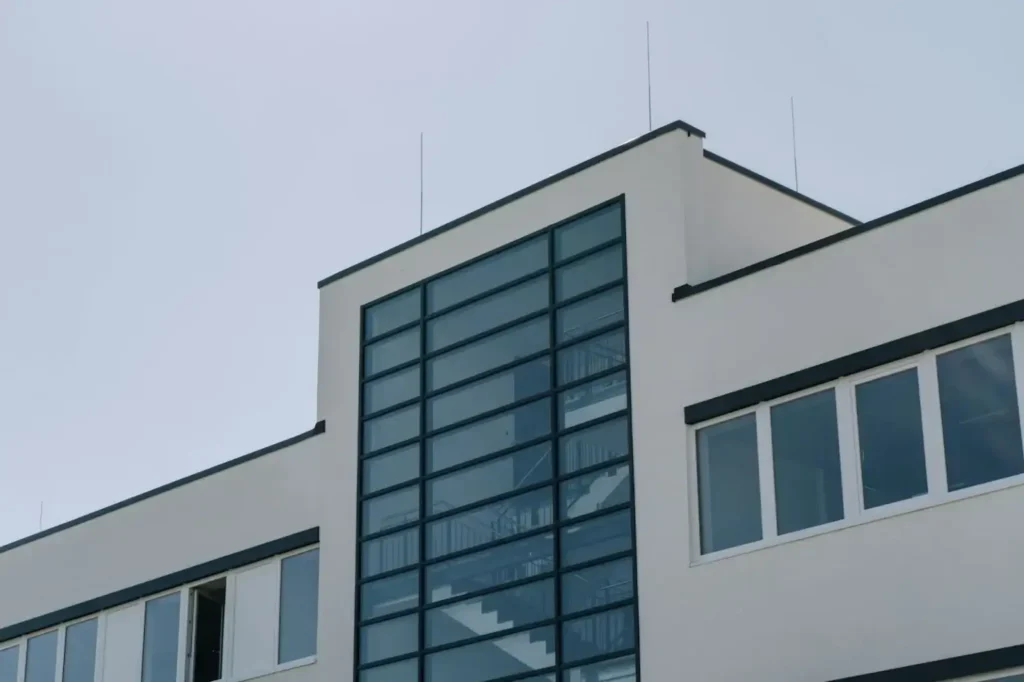Written By: Brad Campbell | December 19, 2024
When it comes to protecting people and property against threats that can result in damage, theft, and physical harm, there’s no better solution than ballistic glass, also known as ballistic-grade security glazing.
Depending on the specific composition, ballistic-grade security glazing can provide varying levels of bullet resistance against specific types of ammunition and firearms, as well as other benefits, such as the ability to be retrofitted over existing windows and doors.
In order to be officially certified and sanctioned for use in bullet-resistant windows and doors, ballistic-grade glazing must undergo glass ballistic tests in accordance with one or more of the official ballistic resistance testing standards available.
Ballistic-grade security glazing is a carefully engineered composite made from a variety of glazing materials designed to resist attacks from specific types of firearms and ammunition.
The composition of ballistic glass can vary, but it typically includes layers of polycarbonates, acrylics, and/or laminated security glass. These materials are bonded together to create a strong, transparent barrier that can absorb and dissipate the energy from ballistic impacts. Each material plays a unique role in the performance of the glazing.
For example, polycarbonate is a lightweight, impact-resistant plastic often used in the inner layers of ballistic glass, in combination with other plastics, or on its own. It can provide high levels of ballistic protection without adding excessive weight, making it ideal for applications where weight is a concern (i.e. when you want to retrofit ballistic glazing over existing doors or windows).
The flexibility and strength of polycarbonate allow it to effectively absorb and dissipate the force of bullets, preventing penetration while minimizing the risk of spalling (when small pieces of glass flake or fly off upon impact). This makes polycarbonate a popular choice in high-security environments, like government buildings and banks, as well as various commercial environments, including in high-risk businesses.

Acrylic, another key material in many types of ballistic glazing, is typically used in outer layers and often combined with polycarbonate. Although not as strong as polycarbonate, acrylic offers excellent optical clarity, which ensures visibility without distortion.
Laminated security glass is made by bonding multiple layers of strengthened security glass with an interlayer of polyvinyl butyral (PVB) or similar thermoplastics. This type of ballistic glazing is commonly used to replace existing glass where bullet resistance is important, but the exact appearance and feel of traditional glass is preferred over that of plastic-based glazing.
Laminated security glass is also frequently combined with polycarbonate to create glass-clad polycarbonate (GCP) security glazing, which can achieve some of the highest levels of ballistic resistance out there. In this case, the laminated glass is used on the outside (attack side), while polycarbonate is used on the inside (safe side).
The demand for ballistic glass of all types is growing across multiple sectors, with schools, businesses, and institutions increasingly seeking out ways to harden their facilities and protect building occupants from active threats.
By selecting the right combination of materials, you can achieve the necessary level of protection while balancing factors such as cost, weight, and appearance. This is where ballistic glass tests come in, helping you evaluate the ballistic resistance of any glazing material you’re considering for a property.
Glass ballistic tests help manufacturers and researchers design and improve glass-based and glass-like protective barriers to improve the safety and security of individuals and assets, primarily in high-security and high-risk institutional or commercial settings.
Different global organizations have established standards for consistent and reliable ballistic resistance testing procedures for glass and other materials used in security applications.
In the United States, the Underwriters Laboratories (UL) 752 standard is prominent, offering a comprehensive framework for testing and classifying bullet-resistant materials, including glass and other glazing materials.
The UL 752 testing standard provides clear testing procedures and performance criteria, classifying materials into different protection levels based on their ability to withstand ballistic threats of varying magnitudes.
For example:
For glass, ballistic testing involves shooting specimens with specified projectiles at defined velocities and distances, assessing their resistance to penetration and deformation. Depending on the results of the glass ballistic tests, the glazing material is then given the appropriate UL 752 rating.

While the UL 752 standard is prominent, various regions and industries may adhere to alternative standards, like the National Institute of Justice (NIJ) or European Standards (EN).
Selection of bullet-resistant materials should align with relevant standards pertinent to the application's requirements and regulations.
You may have noticed that we have only discussed testing for bullet-resistant glass, and haven’t mentioned bulletproof glass testing. This is because the term “bulletproof” glass is really just a marketing term used to refer to different types of ballistic glazing.
In reality, any type of ballistic-grade glazing can eventually be penetrated, either by a more powerful type of firearm/ammunition or by a high enough volume of shots.
This is why glass ballistic tests are so important — they specify exactly what level of ballistic protection you can expect from any given piece of ballistic-grade security glazing.
At Riot Glass, LLC we offer a full range of forced entry-resistant and bullet-resistant glazing products. Contact us today to discuss how we can harden your commercial property’s security with a security glazing retrofit.

HOW CAN WE HELP YOU?
